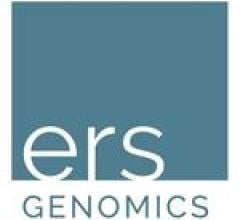June 5, 2009 - Utilizing next generation sequencing and the latest advancements in sequence capture, genomic and molecular biology services company SeqWright, is collaborating with Roche Applied Science and the University of Miami Miller School of Medicine to identify possible genetic variants associated with dilated cardiomyopathy, a disease of heart muscle.
In this collaboration SeqWright used NimbleGen Sequence Capture Human Exome Arrays to enrich more than 180,000 exons from DNA samples from individuals affected with dilated cardiomyopathy. Using the Genome Sequencer FLX, a technology of 454 Life Sciences, SeqWright is sequencing the enriched exons to detect genetic variants within these samples, including single nucleotide polymorphisms (SNP’s) and insertions and deletions. The complete solution from Roche allows targeted resequencing of all of the coding exons, called the human exome, representing the portion of the human genome that is transcribed and translated into the myriad of proteins that function within all cells in the human body.
Sequencing the entire coding portion of the human genome has not been feasible until recent advancements in next generation genomic tools, and by being able to efficiently characterize the entire human exome, researchers can accelerate their research by taking the ‘candidate gene’ approach to a completely new level, SeqWright said.
“Dilated cardiomyopathy is a leading cause of heart failure that carries a high mortality rate,” said Nadine Norton, Ph.D., a research assistant professor from the University of Miami Miller School of Medicine. “We know that familial dilated cardiomyopathy (FDC) can be explained by mutations in more than 20 autosomal and two X-linked genes, yet mutations in these genes account for only one-third of the cause. By using an experimental strategy that employs the sequencing of all coding regions within the human genome, we hope to identify other mutations in other genes that cause this terrible disease.”
This work is part of an ongoing 15-year study of familial dilated cardiomyopathy brought to the Miller School of Medicine in 2007 by Ray Hershberger, M.D., professor of medicine and associate chief of the cardiovascular division.
Funding to Dr. Hershberger for this project has been provided by the NIH’s National Heart Lung and Blood Institute and the Florida Heart Research Foundation.
More information is available at www.fdc.to, www.nimblegen.com, www.roche.com, www.seqwright.com


 January 13, 2025
January 13, 2025 








